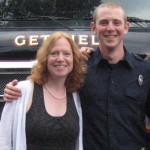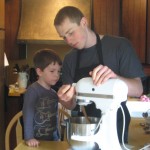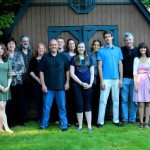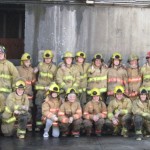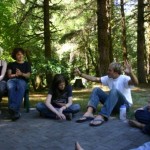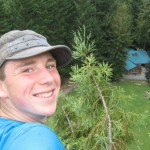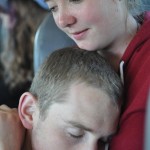Our Story
 Long before my son was born, in what feels like another lifetime, I was an elementary and middle school teacher. I worked in a small school district north of Seattle, first as a sixth grade middle school teacher, and then as a fourth grade teacher. It was a fine district, with good teachers, and helpful administrators. I liked teaching and enjoyed the challenges of working with lots of different students. I loved reading stories to the students, thinking up mathematical problems for us to solve, and helping students express themselves through writing. I was organized, I liked creating interesting lesson plans, and I tried hard to meet everyone’s needs.
Long before my son was born, in what feels like another lifetime, I was an elementary and middle school teacher. I worked in a small school district north of Seattle, first as a sixth grade middle school teacher, and then as a fourth grade teacher. It was a fine district, with good teachers, and helpful administrators. I liked teaching and enjoyed the challenges of working with lots of different students. I loved reading stories to the students, thinking up mathematical problems for us to solve, and helping students express themselves through writing. I was organized, I liked creating interesting lesson plans, and I tried hard to meet everyone’s needs.
What I noticed after a while, though, was that it was hard to meet the needs of the students, the parents, and the administrators all at once. Some students loved the books I chose for us to read, but others would have preferred to make their own choices. Some loved math, while others loved to write or draw. I tried to give them as many choices as I could within the limits of the curriculum, but I could only individualize things so much. There were many specific expectations from the principals and the parents that I needed to pay attention to, and unfortunately, everyone had different expectations. Different principals seemed to like different types of lesson plans. Some parents wanted me to give more homework, some less. Some were amazed at how much time their children were given to slowly and carefully write, revise, and edit their work in class, while others were wondering why their children weren’t pumping out more written drafts and end products. The conflicting desires were frustrating.
By my sixth year of teaching, I was looking forward to taking some time off due to the birth of my son, Ben. I figured I’d take at least a year off, and then maybe go back. Maybe. Probably in the back of my mind, I knew I was happily leaving the profession.
The one thing I do remember toward the end of that sixth year was meeting a local homeschooling family. They lived up in the mountains, past the school bus service routes, and one day the mom came to my classroom to ask some questions about what we were doing for fourth grade. She just wanted some ideas and possibly some books to look at for her son for the next year. I really enjoyed talking with her. I realized she wasn’t odd or trying to isolate her kids, or anything else like that. I told her about the novels we read each year and the writing we did together. She seemed to like my ideas. She was enthusiastic about reading with her children, playing math games with them, and sharing the world with them. Right then, I gained a new perspective. For the first time, I saw homeschooling for what it could be. Not something scary to be avoided because it might hurt the teacher’s union. I saw how they could do all the things we were doing, only on a smaller, family-sized scale. Thus began the gradual paradigm shifts about learning and education that I would experience over the next few years.
After Ben was born, I didn’t think too much more about teaching or homeschooling for quite a while. I was busy nursing, changing diapers, playing, and meeting new friends in my expanding world of motherhood. I loved it.
Early on, I was lucky enough to meet other moms within La Leche League, a support organization for nursing mothers. I found like-minded friends and mentors who gave me support during those early months and years of mothering. I learned from them good mothering skills and how to nurture strong attachments with babies and older children. I learned that I was the expert for my own baby and my own family. I learned to trust myself. These were powerful lessons that have stayed with me ever since.
Over the next couple years of Ben’s life, I became friends with two La Leche League leaders who were homeschooling their older children. It was nice to talk with them about their experiences and to watch their children grow. It was good to see them keep their attachments with their kids – allowing them to be home together, instead of sending them off to school, away from the family for several hours a day. I noticed they enjoyed exploring the world together, and their children got along quite well with each other as well as with other children both younger and older than themselves. I could see the benefits of their multi-age connections and the continuing attachments within their families.
At this same time, my husband, Don, and I had also started reading as many books as we could about homeschooling families and their experiences. We wanted to find out why people homeschooled, and what they did when they didn’t send their kids to school. We feel lucky that early on, we were exposed to the idea of unschooling, too. Unschooling was a different, more interesting idea, because it focused not only on learning outside of school, but without the confines of school methods and ideology. John Holt, a former teacher himself, was one of the earliest proponents of this idea – that children didn’t necessarily need to be taught in order to learn things, and that they are learning all the time.
Without imposing a school-at-home model, we could all grow and learn together. The concept of living without school, unschooling ourselves, and unschooling Ben made more and more sense to us all the time.
Along with reading good books and observing other families, we talked with new friends about the possibilities of homeschooling. The more time we spent together, talking with each other, the more we realized that homeschooling was a great option for us. Thus began our small support network of friends.
Over those first few years, we spent lots of time with this group of friends. We talked and talked about educational philosophies and why we wanted to homeschool. We learned from and supported each other. We went to parks and lakes, children’s museums, and any other places that seemed interesting to us. We shared books and games and meals together. We learned by observing our own children and by playing with them. Our most important resource was time.
And so our adventure began.

